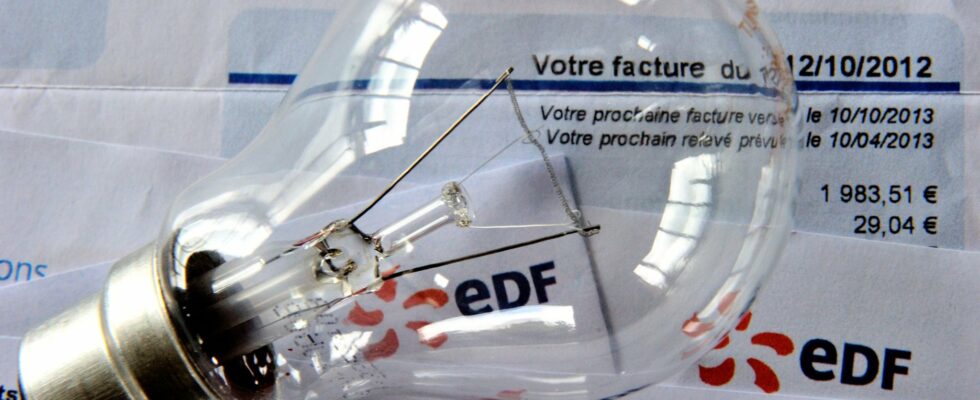In the future, which element will most influence French people’s electricity bills? Rising prices or increased volatility on the markets? As the government prepares to present its budgetary decisions intended to fill France’s deficit this Thursday, October 10, many households fear an increase in energy taxes. A particularly sensitive subject as electricity prices have increased by 40% over the last two years.
“However, another trend, just as important for consumers, is at work: with the growing integration of solar panels and wind turbines into the national network, price variations during the day will increase on the markets “, warns Mathieu Horn, the director of triPica, a French company whose goal is to accelerate the development of new economic models in the energy sector, thanks to a platform based on artificial intelligence. The good news? Households can take advantage of this to make substantial savings. Provided that dynamic pricing contracts develop sufficiently in France.
L’Express: Why will price volatility become a key element?
Mathieu Horn: We are entering a world where energy production is decentralized with more and more renewable energies, solar panels on roofs, personal car batteries allowing energy to be returned to the electricity network, etc. This creates intermittency of course but also volatility on the markets. For example, the electron in the middle of the afternoon on a nice day costs almost nothing. There may even be periods when energy prices remain negative!
All this foreshadows a strong development among energy suppliers. Previously, customers subscribed, paid the same amount every month and received an adjustment invoice at the end of the year. This world is coming to an end. From now on, to take into account self-consumption and reinjection into the network, energy suppliers are moving towards new types of contracts taking into account the evolution of prices on the markets. In France, there is still a long way to go in this area. But in Northern European countries, this dynamic pricing is already the norm. I often talk to actors who want to settle in France. They are surprised and do not understand why this type of model has not yet developed among us. We have the technology to do it.
Volatility is often seen as a negative thing. What can be the benefits for households?
The idea is to consume energy when energy is cheapest in order to reduce bills and to send it into the network when it has value, which requires storing it beforehand in a battery. A few days ago, Renault and Mobilize Power launched an offer of this type. Owners of an electric R5 can take out an electricity contract. When they plug in their vehicle in the evening, it can discharge when the network needs it, for example at 6 p.m. at peak time. The electricity stored in the vehicle, which has enormous value at that time, is resold on the market. This generates a margin which is shared between the energy supplier and the owner of the R5.
Can the resale of electricity really have an impact on household finances? Is there not a myth to be deconstructed on this point?
On the contrary, there is a whole story to be constructed. We are only at the beginning. In France, barely 5% of homes are equipped with solar panels. In Australia, 30% already reduce bills in this way and 20% of homes are equipped with a battery. How will value be shared between the user and the supplier? Initially, suppliers will probably try to keep most of it at home.
But this will not last due to competition. Look what happened in telecoms. We started with packages of 50 megas at 15 euros per month. Now, for 10 euros, we have 150 gigabytes. So you have to trust the market. This will eventually become structured. The final goal is to achieve a reduction of 30% to 50% compared to the standard price. If households do not save as much, they will probably not make the effort to equip themselves with solar panels or batteries.
Concretely, will households have to monitor electricity like fuel to a fire in the future?
Yes. The current billing model based on a regulated rate is not going to disappear. But this is not where households will do the best business. In the future, we will have to look at all the options available to hope to pay less: batteries, solar panels, R5 type electric vehicles equipped with bi-directional chargers, off-peak consumption… Recently, the Danish Barry attempted to establish itself in France with a dynamic pricing offer. The electricity price of this contract varied every 30 minutes. Maybe it was excessive.
Users are not intended to constantly monitor market developments. This is why automation will likely go hand in hand with future dynamic pricing options. With Linky meters, we are already able to measure – through manipulation – the consumption of the different equipment in a home. The next step will be to manage them to avoid paying the full price. For example, in periods of market tension, we can imagine heating that runs for 15 minutes then stops for 15 minutes and so on.
How long will these changes take?
In France we have the syndrome of the Gallic village which still resists the invader. In telecoms, it took only twenty years to achieve numerous milestones: the arrival of mobiles, data, 3G, 4G then 5G. In energy, we are still at the beginning of this evolution. And the cycle will undoubtedly be longer because it is not entirely linked to consumer needs. Climate change makes it necessary to decarbonize energy and change our practices, which causes some reluctance. But ultimately, nothing will stop this trend towards innovation.
.
